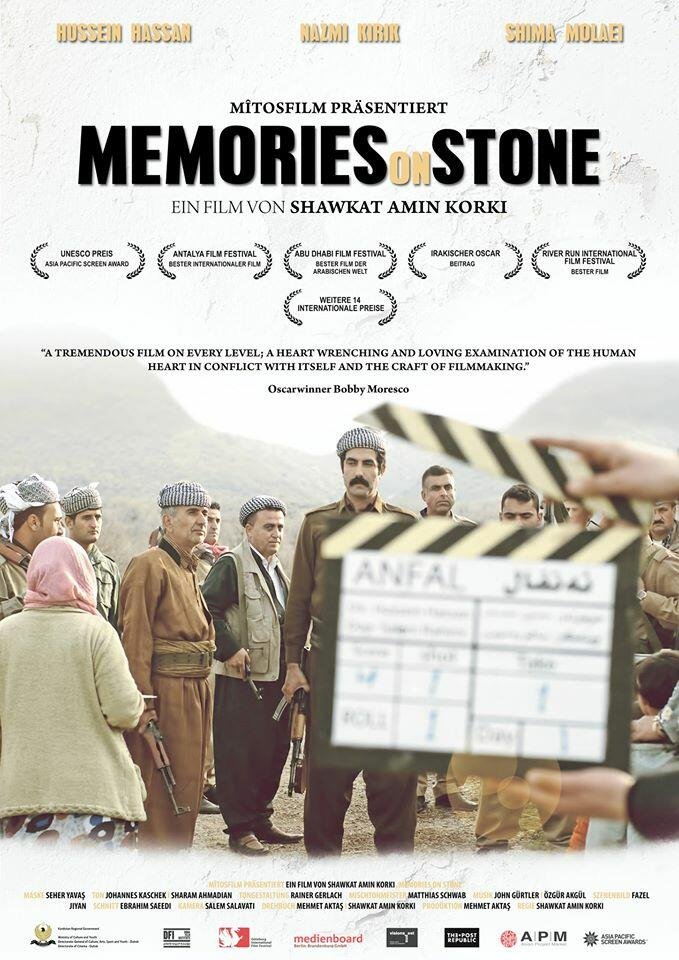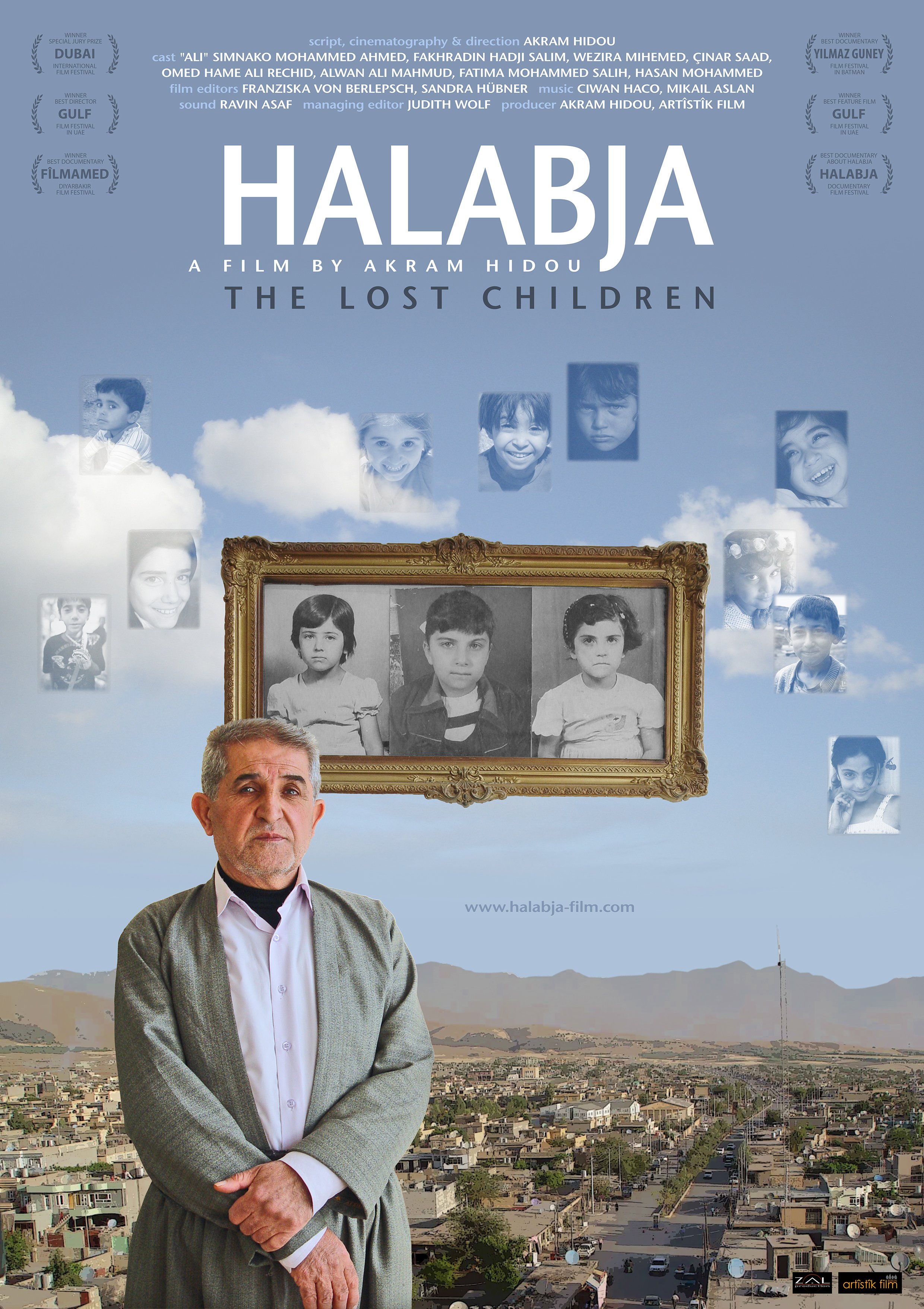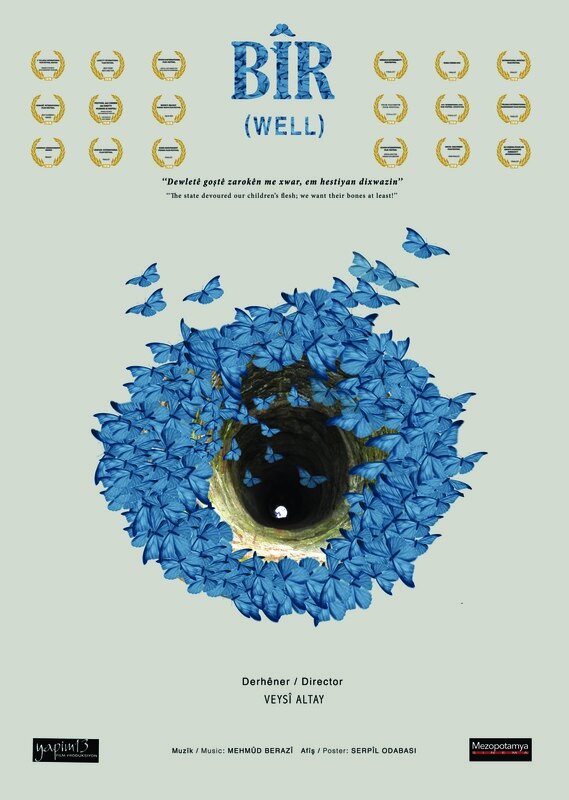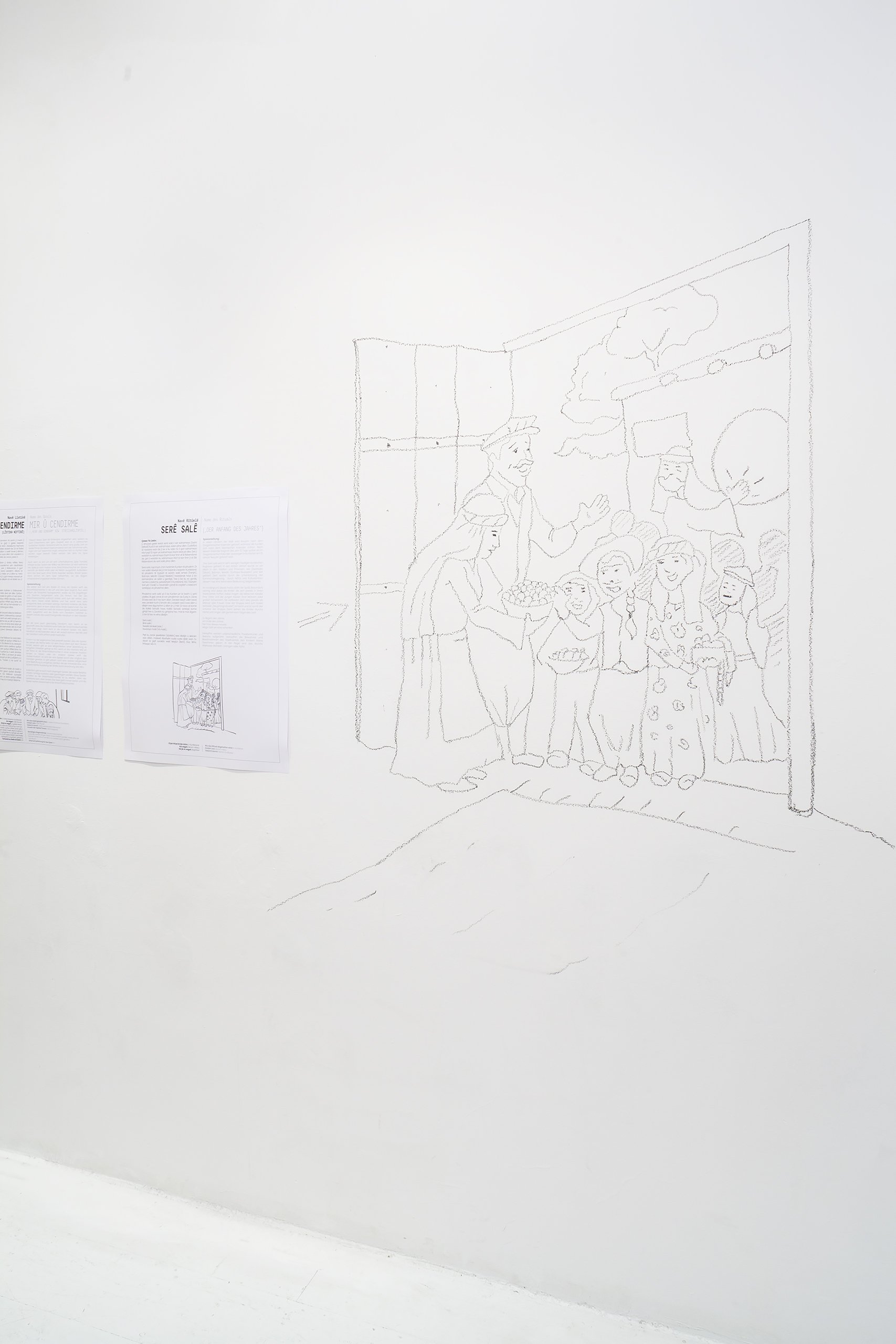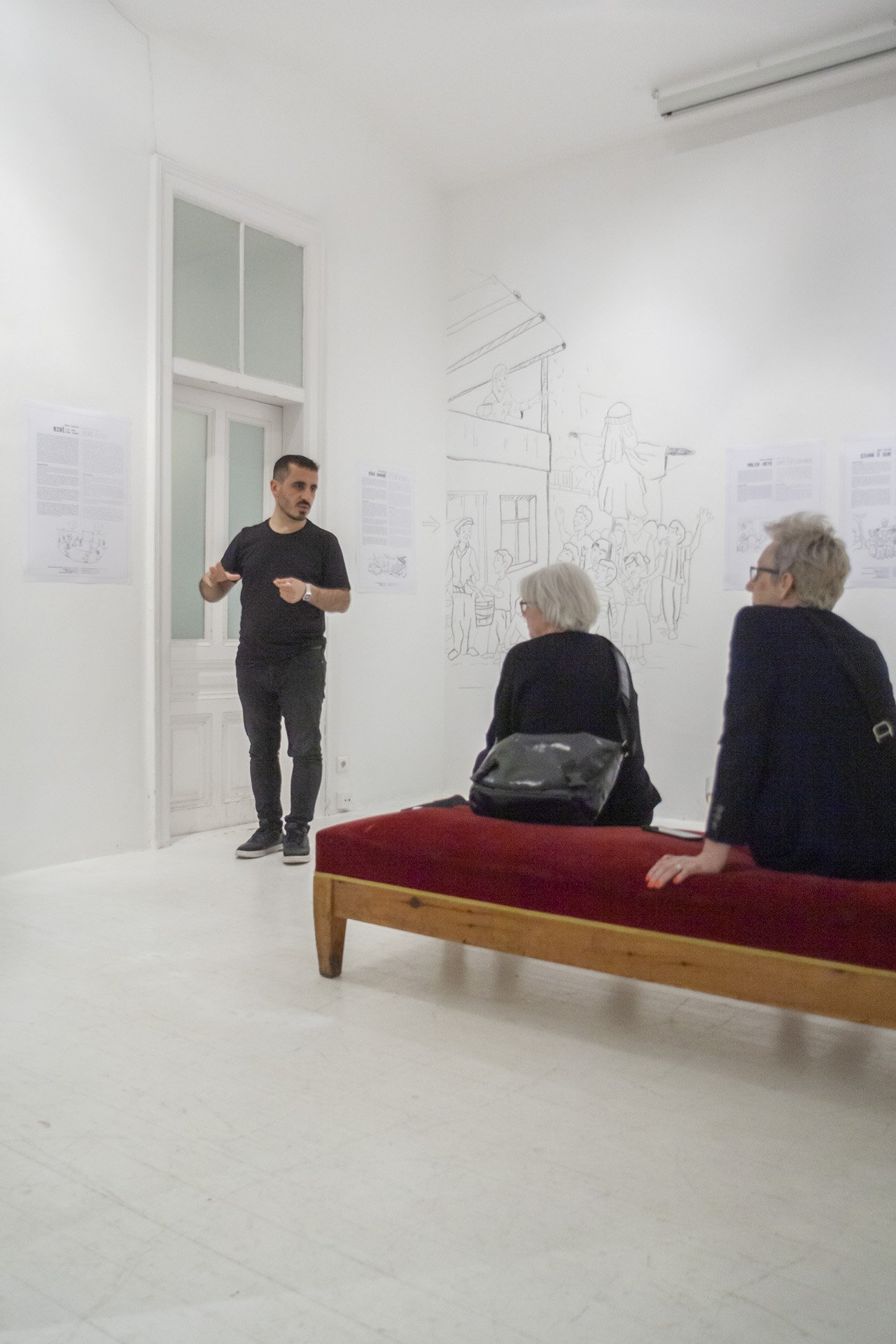ÇANDA KURDİ / KURDISCHE KULTUR
ÇANDA KURDİ / KURDISCHE KULTUR
Curated by Baris Seyitvan
May 19 / 20 / 21
As it is known, tens of thousands of Kurdistanis live in their own lands far away in Vienna and try to exist in life here. In our events, which we will hold at hinterland in May, under the name Cand Kurd, we are trying to satisfy the longing of the Kurdish people living in Vienna for their own culture, and at the same time, with this event, we are trying to establish communication and friendship bridges between the other people living here and the traditions of the Kurdish people, their games, rituals, music and other cultural values will be promoted.
PROGRAMM
Thursday, May 19, 2022
3 - 7 pm: EXHIBITION opening Cand Kurd by Baris Seyitvan
8 pm: FILM Bîranînen li ser kevirî / Memories on Stone by Shawkat Amin Korki
Friday, May 20, 2022
7 pm: BOOK Presentation Cand Kurd by Baris Seyitvan
There will be an introduction to a book published recently under the name Cand Kurd. In this book, the Games, Rituals and stories that the Kurdish people living in Europe learned or played while living in their own geography in the past, were recorded. The book has been published in bilingual Kurdish – German.
8 pm: Film The Lost Children of Halabja Film by Akram Hidou
Saturday May 21, 2022
1 – 3pm Kurdish food will be served
3 pm: Book Presentation “Rising among ruins, dancing amidst bullets” by Maryam Ashrafi
5 pm: Kurdish Music and Dance by Ibrahim Cakir, Ilyascan, Ercan Öter
8 pm “Bîr” Film by Veysi Altay
DETAILED PROGRAMM
Bîranînen li ser kevirî / Memories on Stone
Directed by Shawkat Amin Korki, 2014, 97 min. Iraq.
Written by Mehmet Aktas, Shawkat Amin Korki, Produced by Mehmet Aktas, Thomas Koessler
Winner! UNESCO Prize at Asia Pacific Screen Academy awards 2014. Best Film of the Arab World, Abu Dhabi Film Festival 2014. An extraordinary comedy (albeit very dark) from Erbil, the capital of Iraqi Kurdistan. After the fall of Saddam, two friends decide to produce a film about the Al Anfal massacre of Kurds in Iraq. But making a film in post-war Kurdistan is not easy, and problems escalate. Some problems will resonate with filmmakers anywhere – inadequate finance, temperamental stars, and weather events. But many of the challenges are specific – smuggling an actress across a border on a donkey and in the line of fire of border guards, for example.
With great visual and comedic flair, director Shawkat Amin Korki delivers a story laced with autobiographical touches. Through the trials and tribulations of his protagonists, a poignant portrait emerges of contemporary Kurdish society haunted by its past.
Shawkat Amin Korki was born in 1973 in Iraqi Kurdistan. He studied cinema in Iran where he lived in exile for 25 years. He worked in theatre, television and cinema before his return to Kurdistan. Korki gained international recognition with his debut feature Crossing the Dust (2006) winning 20 awards around the world.
(https://www.roninfilms.com.au/feature/16540/memories-on-stone.html)
The Lost Children of Halabja
Film by Akram Hidou, Kurdistan-Iraq / Germany, 72 Min.
Ali visits the cemetery of Halabja, Kurdistan/Iraq, and remains silent in front of a tombstone with a scratched name upon. It is his own. Ali returns after 21 years from Iran back to his native city Halabja, looking for his lost family. Five families hope him to be their missing child. Among them the family of the school teacher and artist Fakhradin who lost through the poison gas attack of Saddam Hussein back in 1988 five children. Two among them are missing. Is Ali their missing son? http://www.halabja-film.com
Akram Hidou was born in 1973 in Serê Kaniyê in the kurdish region of Syria. After graduating from university in Latakia where he studied health sciences he 1995 followed his family to Germany out of political reasons. 1999 he started his studies of History and Politics at the Hannover University but then decided to start a career as a digital media designer. Akram Hidou finalized his studies of cinema-direction in 2009 at the Ruhr-Academy of arts. Akram Hidou lives in Berlin, working as an independent film director, cinematographer and producer. «HALABJA ― the lost children» is his first long film.
Rising among Ruins, Dancing amidst Bullets
Book by Maryam Ashrafi, Book winner of the HIP 2021 prize.
For centuries, Kurdish people (living in Turkey, Iraq, Iran and Syria) have fought for their basic rights in each country they live in, not only to retake some of the territory that had been confiscated, but to also ensure that their right to self-determination as well as their fundamental rights are respected. The war in Syria and the commitment of the Kurds was the opportunity for the outside world and the media to start understanding this long-standing struggle. The entry into action of the Islamic State in 2014 turned a civil war into a geopolitical and religiously orientated war. Since the beginning of the war, with the hard-pressed peaceful demonstrations of 2011 that took place in the wake of the Arab Spring, more than 400,000 people have died, not to mention refugees and displaced persons who have fled the country, estimated at five to six million; in other words, a quarter of the Syrian population. The unprecedented presence of female combatants has been noted everywhere. The freedom they have asserted in combat is a decisive step in establishing a Kurdish society bereft of patriarchal and tribal strictures. Did this revolutionary movement perish when Donald Trump announced on October 7, 2019, the withdrawal of his troops from Northern Syria together withErdogan’s military maneuvers into the Rojava area? Are Maryam’s remarkable images from 2015 onwards at present historical or even redundant in the way this war has evolved?
Maryam Ashrafi is a social documentary photographer who believes in long term projects, she chooses to stay behind the front line and observe the daily lives of combatants, which includes a lot of waiting around. She is above all involved in documenting the everyday life on the Kurdish front. Her work puts a face on a widely commented war which remains, from afar, perceived mainly by the West in terms of the number of refugees. Maryam documents the war in her own way, stressing its complexities and the actual building of a new social model based on equality where women occupy the same roles as men, which is remarkable in this area of the world. This is why, over the years, she has returned to the same places, from Kobane to Tabqa, to show the unique power of the resilience of the population and the will to live and change.
BÎR (Well)
Film by Veysi Altay, 63 min, Kurdish with German subtitles
In the 1990s many people in Kurdistan were taken into custody and interrogated under torture; their killers disposed of the bodies by throwing them out of helicopters or burying them in acid-filled wells. Thousands were murdered/disappeared by paramilitary forces—such as Jitem and Hizbul-Kontra—that were financed and supported by the state, though they have always stuck to the line: “We didn’t do it.” The documentary ‘BÎR’ looks at the case of seven people, including four children, who were disappeared from the town of Kerboran [Dargeçit] in 1995, and tells the story of their families’ tireless search for their bones.
Veysi Altay has been involved in photography and cinema 20 years. He worked for many years as an administrator for Amnesty International for 6 years and for the Human Rights Association (İHD) and also reported from the war in Rojava (Western Kurdistan) during the battles against ISIS in Serêkaniyê/Ras al-Ayn (2013) and Kobanê (2014). He combines his media and documentary work with Turkish-Kurdish translation and interpreting. Altay has carried out archival research on subjects such as mines, the lynch culture, nationalism, seasonal workers and political disappearances and has produced a book of photography, published in three languages, entitled Em Ên Wenda (We, the Disappeared), featuring 100 photos and 100 stories of people who were disappeared by the state. He is also the director of a number of documentary films.
Installation views
Photos: Jakob Lindner
Supported by


